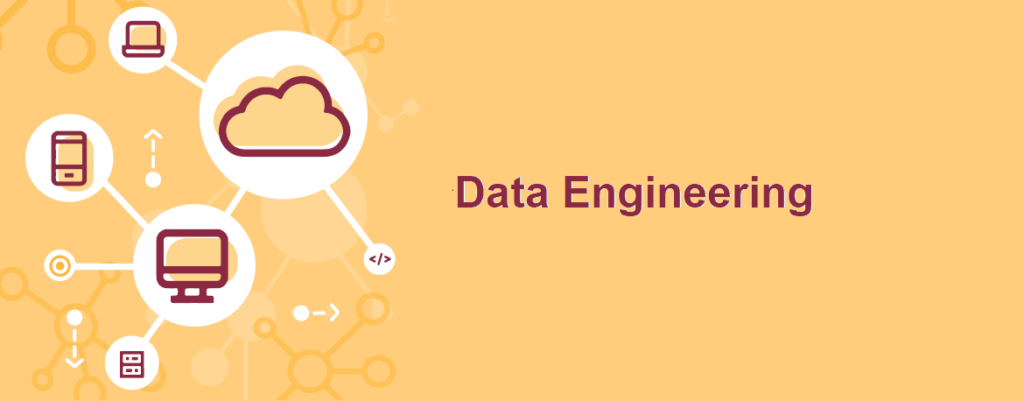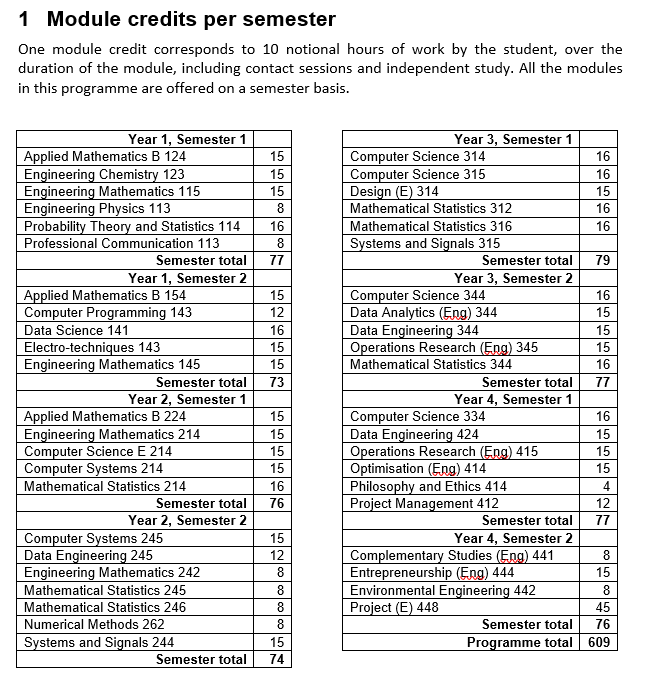BEng (Electrical and Electronic) Data Engineering specialisation

From 2020, a new focus area in Data Engineering has been added to the existing undergraduate degree in Electrical and Electronic Engineering BEng (E&E). The purpose of this new specialisation in Data Engineering is to prepare engineers for the Fourth Industrial Revolution where the world of work has fundamentally changed and there is a deluge of data that needs to be structured, modelled and analysed to enable data-led organisations to discover the underlying knowledge and make well-informed decisions. The Faculty of Engineering at Stellenbosch University also recently received confirmation that the new BEng degree in Data Engineering will be fully accredited by the Engineering Council of South Africa (ECSA) for registration as Professional Engineer, read more about this on our Engineering Faculty website.
Download the full English or Afrikaans brochures here for more information.
Four Existing Focus Areas
There are currently four existing focus area in E&E Engineering:
- In the Energy focus area, students learn about electric motors, power generation, renewable energy, energy control and computer controlled power management.
- The focus of Informatics is on high-level computer science and software systems such as Internet communication, virtual storage, etc. It also provides an introduction to computers and data, including hardware and software design in both high-level and low-level languages.
- Robotics focuses on the interface between mechanics and electronics, and deals with the design of robot vehicles, unmanned aerial vehicles as well as satellites.
- The purpose of the Telecommunications focus area is to understand the operation of communication devices such as cell phones, radio and television receivers, as well as GPS systems. In such systems, microwave signals are modulated with encoded information streams, so that information can be disseminated around the world in the blink of an eye. The theory of telecommunications systems is discussed, as well as electronics, high frequency techniques and analogue and digital modulation systems.
It should be noted that all of the above focus areas contain modules in data analytics and/or expert system, but not the depth of the Data Engineering focus area.
What is Data Engineering?
Data Engineering contains all the tasks required to make data available for analysis, knowledge discovery and decision-making processes. The most important task of the data engineer is to develop and maintain an organization’s data pipeline systems, and implement algorithms to transform data into a usable format for analysis. The tasks of a data engineer include data collection, data storage, data synchronization, data transformation, data cleaning, data management, and data model development.
Data engineers are responsible for detecting trends in data sets and developing algorithms to make raw data usable. This requires a considerable set of technical skills, including in-depth knowledge of database design and various programming languages. Data engineers are often responsible for building algorithms to provide easier access to structured and unstructured data, but it requires an understanding of the goals of an organization using large datasets. Data engineers need excellent communication skills to connect with different stakeholders inside and outside the organization to understand what Big Data business leaders want to earn and also to present their findings in a way the audience can easily understand.
From the first year, the focus area in Data Engineering is built on the foundations of Mathematics, Statistics, Computer Science and Artificial Intelligence. Students develop the engineering skills to create mathematical, physical, and statistical models of real systems, including data systems. After obtaining the qualification, Stellenbosch University’s Data Engineers can integrate these areas of knowledge to critically analyse complex systems to come up with innovative solutions to problems. This will be demonstrated by students who have successfully completed their final-year data engineering project in their final year of study.
The Data Engineering Curriculum
The undergraduate curriculum in BEng E&E Engineering is a four-year program. The first-year curriculum for the four existing focus areas is the same as all the other engineering disciplines offered at Stellenbosch (i.e. Chemical, Civil, Industrial, Mechanical, Mechatronic). Further, the curriculum of all four existing focus areas of E&E Engineering (Energy, Informatics, Robotics and Telecommunications) is the same in the second year and the first semester of the third year.
In the second semester of the third year, students must select one of these focus areas and that determines which collection of modules is in the remainder of the educational programme. Because the curriculum for the four existing focus areas only separates later, students who choose one of these focus areas do not have to make a decision on which one of the four in the first year. The current curriculum can be found in the Engineering yearbook, but a summary is provided here.
However, the first year’s curriculum in the focus area in Data Engineering differs from the other BEng programs due to the stronger focus on statistics and computer science. The new curriculum for the Data Engineering focus area is shown here. The description of the modules can be downloaded here.

How to apply for the Data Engineering Specialisation
Prospective students interested in pursuing a career in Data Engineering are encouraged to directly contact the Chair of the Department of Electrical and Electronic Engineering, Prof Herman Engelbrecht, at ee@sun.ac.za or tel 021 808 2139. If you are considering this focus area, please note that it is a challenging focus area, therefore only learners with a sustained distinction in mathematics will be considered at this late stage.




